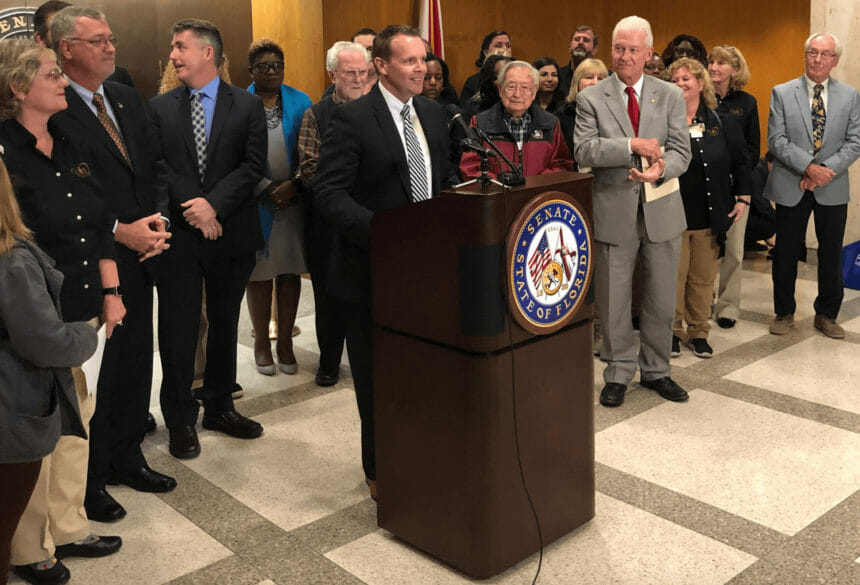
Realizing Florida’s continuing care retirement communities would be placed in an untenable position due to a proposed federal rule affecting the Medicaid program, LeadingAge Florida knew it had to act.
The association celebrated with other long-term care providers when the Centers for Medicare & Medicaid Services announced Monday that it was rescinding the Medicaid Fiscal Accountability Rule, or MFAR, knowing that its efforts were successful.
CMS announced the rule in November in an effort to add transparency to the Medicaid payment process and eliminate suspect practices. The rule would have established new requirements for states to report provider-level information on Medicaid supplemental payments. The decision to withdraw the controversial proposal came after CMS heard from providers about “potential unintended consequences.”
LeadingAge Florida was among those groups lobbying state and federal leaders to protect older adults and the communities in which they reside from the potential for decreased services and higher costs.
The state association’s president and CEO, Steve Bahmer, said that its life plan community members were looking at an average tax increase of $400,000 annually — with a few looking at more than $1 million per year. Realizing the “significant impact,” the organization made a series of moves that likely assisted efforts in having the rule withdrawn.
In its discussions with CMS, LeadingAge Florida proposed two options — modify the proposed rule to protect the CCRC exemption in Florida, or withdraw the rule entirely. Bahmer said LeadingAge also offered to work with CMS in the future if it decides to address this issue in the future.
CMS has allowed states the ability to assess healthcare-related taxes on providers and receive a federal match to increase their Medicaid dollars. Currently, federal law allows states to participate in this program and still exempt some providers from these taxes if they meet certain criteria.
In 2009, Florida passed a provider tax that included exemptions for CCRCs. If the proposed rule had passed, it would have put CCRCs at risk. Florida provides exemptions to its provider tax on nursing homes located on the campuses of CCRCs, which CMS allows. Elimination of this exemption would have imposed significant costs on these communities, to the tune of $26 million annually, Bahmer said, leaving providers in the position of reducing services or increasing costs to residents.
“They would have paid more in taxes than they received in benefit,” Bahmer said.
Bahmer said LeadingAge Florida reached out to congressional delegates and Gov. Ron DeSantis’ administration and worked closely with the Florida Life Care Residents Association to communicate the effect the rule would have on providers.
“Folks who live in Florida CCRCs saved for a long time to self-fund their retirement in these communities,” Bahmer asid. “It was important for the congressional delegation to understand the impact this rule would have on them.”
LeadingAge Florida began having conversations with congressional delegates in January, and a group of staff members traveled to Washington, D.C., in February to personally explain the potential effect of the rule.
“We were grateful the delegation listened to our concerns and was receptive,” Bahmer said, adding that the result was a bipartisan letter to CMS urging the government to protect Florida’s seniors in CCRCs.
A similar effort took place at the state level, with Florida’s Agency for Health Care Administration writing a similar letter to CMS to express concerns regarding the rule.
Through a partnership with the FLiCRA, LeadingAge Florida and association members produced more than 600 written comments on the rule. In addition, CCRC residents flooded CMS with thousands of letters, comments and emails about how the rule would affect them personally.
“In as much as we know we were one organization among many concerned about MFAR, through that concerted effort, our work with the government, administration and residents made a difference,” Bahmer said. “To CMS’ credit, they were receptive and listened to our concerns.”




